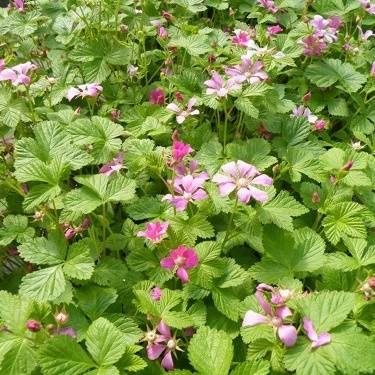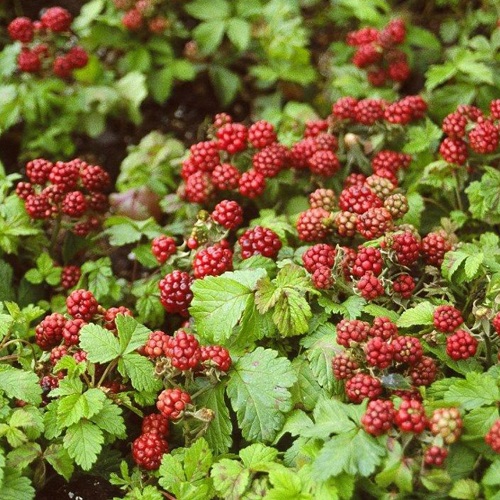Arctic Raspberry : VALENTINA 2 ½" pot
$6.95
(Rubus arcticus L subsp. x stellarcticus)
These super-hardy Swedish selections are possibly the most uncommon members of the whole Raspberry clan. The low growing, thornless plants spread by root rhizomes, forming a thick mat of bright green trifoliate leaves, no more than 15cm (6") tall. By late spring the carpet is adorned with small, pinkish blossoms followed by dainty, delicious and aromatic red raspberries in mid summer. The fall foliage is a feast for the eyes with shades of crimson and burgundy. In early spring the plants bounce back from the roots.
We offer several of Dr. Gunny Larssen's favourites, selected on the basis of plant vigour as well as fruit quality, quantity and flavour. Although practically identical, two varieties are needed for pollination.
Plant 30-60cm (1-2') apart in a well-drained, sunny spot.
PLANT WITH ANNA | ZONE 2 | HARVEST: LATE JULY-AUG.
Only logged in customers who have purchased this product may leave a review.
Growing Tips
Raspberry canes MUST be kept moist until they are in the ground. In fact, we believe that the main reason that canes fail to grow is from the root hairs becoming dry at some point in the planting process.
We suggest using Soil Moist root dip (see page 81). Soak the roots for 1-2 hours just before planting. From our own experience it is highly effective. It is also recommended for other plants – blackberries, strawberries, etc.


Reviews
There are no reviews yet.